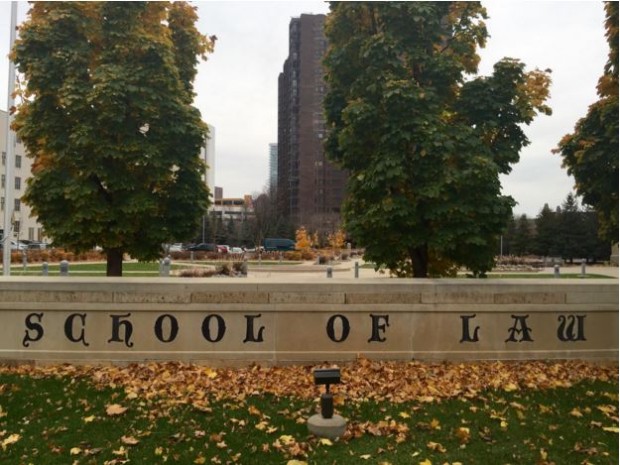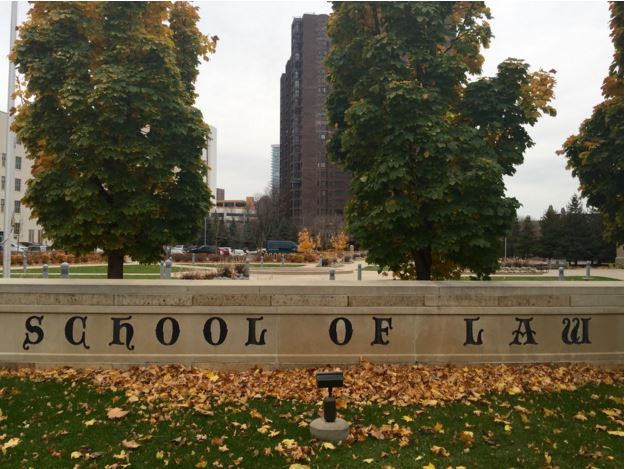
Six men are tasting freedom thanks to the work of St. Thomas law professor Mark Osler and his team of alumni.
President Barack Obama granted clemency to 214 federal inmates on Aug. 3, owing six of those cases to Osler and his team of several St. Thomas alumni who worked as clinical student attorneys. Their work on these cases led to the freedom of six men.
When working on a case, Osler and his team stress the importance of seeking out the story of their client, knowing that they are more than just the crime they have committed.
“My students helped choose the cases we worked on, and from there on out our task was to tell the story of that person,” Osler said. “The crime the client committed was one part of the story, but only one part: There is also what came before and what came after.”
Once they get to know their client, they write a clemency petition, which can be a grueling process that involves a lot of waiting — sometimes years.
“We drafted a clemency petition for each of the clients, worked with them to make their story a part of it, and then submitted the petition to the pardon attorney,” Osler said. “The length of time between submitting a petition and getting a decision varies wildly — from a few months to over four years.”
Three of their clients have now been released, with the other three expected to be released within the next few years.
Most of the inmates on Obama’s release list were first-time offenders of low level, nonviolent drug crimes, and Osler’s clients were no exception. He has spent most of his professional career advocating for sentencing policies rooted in human dignity, which is something he feels is lacking when it comes to federal law in regards to drug crimes.
“I very much believe in punishment for crime, and that some people need to be incapacitated and imprisoned,” Osler said. “However, in fighting drugs we have gone too far. Incarcerating low-level, nonviolent drug defendants for very long periods solves no problem.”
Obama has now commuted the sentences of 248 people during his presidency, more than the last six presidents combined. This upward trend is a response to the country’s growing incarceration rate, which has been exponentially rising since the War on Drugs began in 1971.
According to the Bureau of Justice Statistics, the U.S. now has the largest incarceration rate in the world, with one out of every 111 adults in local, state, or federal prison. Strict minimum sentencing laws in regards to drug-related crime has put many first time offenders behind bars for low level, non-violent crime.
The growing number of adults spending time in prison for drug-related crimes is frustrating for Osler. He feels that more needs to be done to truly solve the problem, as American prisons do not provide proper rehabilitation services.
“It certainly does little to nothing in terms of affecting drug use by others. Prison is an important tool, but too often we treat it as the only tool in controlling narcotics,” Osler said.
While it is very rewarding to see justice for his clients, Osler can’t help but feel remorse for those who are still awaiting their freedom. Things have come a long way, but he knows that much more needs to be done in order to feel completely satisfied.
“There is an overwhelming joy for those who will be free, but a deep sadness about the others who are worthy but remain in prison,” Osler said. “When you know all of their stories so well, it is hard not to remember the ones who still await relief from an unjust burden.”
Mary Brickner can be reached at bric0029@stthomas.edu



